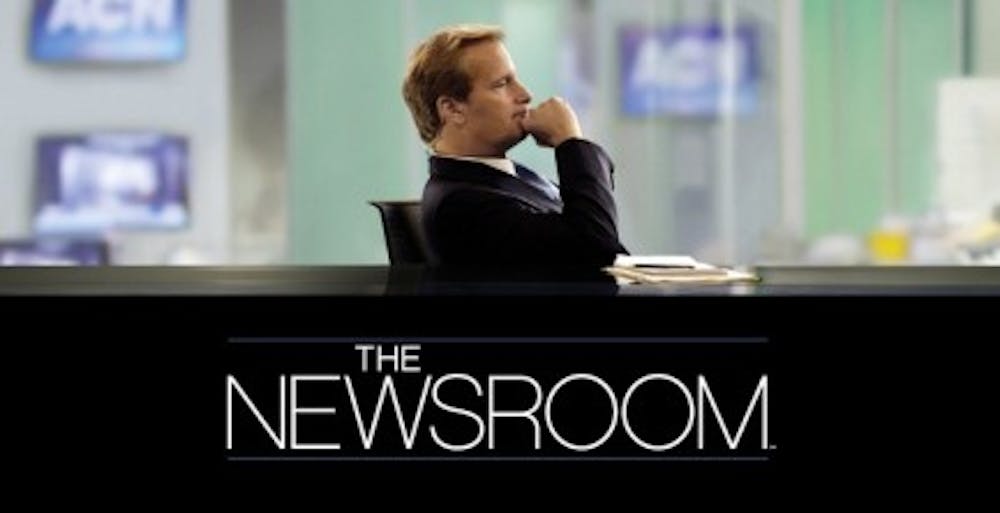1. They changed that ridiculously slow-paced intro from last season. Thank God. Instead of a slideshow of the most famous journalists soundtracked by boring music, a more upbeat jingle plays while shots of the hustle and bustle of everyday news reporting flash on the screen. Much more realistic and significantly less snooze-inducing. Thanks for catching on, Sorky.
2. Will hums "Friday" by Rebecca Black for an extended period of time in a both hilarious and saddening reminder of what plagued the month of August 2011.
3. Maggie and Don finally, FINALLY break up. After an entire season of the audience thinking, "Why are these two even TOGETHER?" a godsend Youtube video ended this pathetic excuse for a relationship. Critics are calling the plot device a little too "deus ex machina," but honestly, in the 21st century, it's totally likely that a Sex and the City tourist will film some crazy chick's outburst about her relationship issues. And then that crazy chick's crazy cousin will send it to her fiancé. Okay, maybe it's a little deus ex machina... but at least now Don doesn't have to feel bad about not being in love with Maggie and can finally ask out Money Skirt.
4. After all this, nobody in the office can accept the fact that Olivia Munn's socially challenged economist can be both stunningly attractive and extremely intelligent. Her first appearance this season comes during an interaction with Sam Waterston's Charlie in which he calls her "Money Skirt." Money skirt, really? We can do better, Sorkin, we can really do better.
5. Finally, a new plot line is introduced about a false story News Night reported on, Operation Genoa. The episode revolves around Mac and Will's testimony with a dry corporate lawyer (played by the talented Marcia Gay Harden) 14 months after August 2011. It looks as though we're in for a whirlwind of fact and fiction this season as the mystery unravels and we find out why Maggie's hair is akin to that of a Lilith Fair-goer.
The bottom line: Season 2 is better. It looks like Sorkin heard his critics after one too many idealistic monologues last season. The latter half of Sorkin's 2011 looks to be filled less with idealism and more with consequences. It will be disheartening for those of us who enjoyed the escape into the world of actual news reporting, but there is no universe, real or fictional, in which somebody gets away with calling the Tea Party "The American Taliban." Sorry Will, but we do look forward to see you getting your ass kicked a little.

